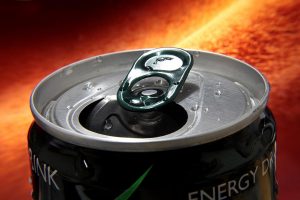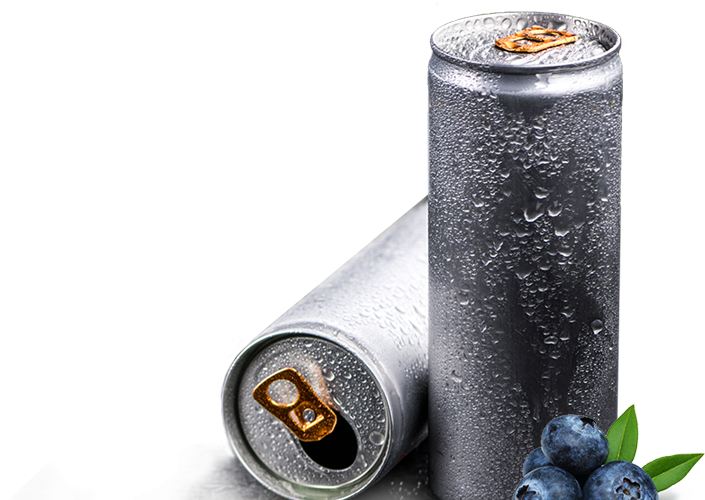
The name already implies that a gulp or say a can, would release a rush of energy into your blood streams and make your muscles pop like when Popeye takes his spinach.
So, I guess we could do a little bit of bisecting to know how much energy we could benefit from these drinks.
Energy drinks have been promoted to increase energy and enhance mental alertness and physical performance, they contain significant amounts of caffeine as much sugar as soda, or even more as the case may be.
A can of energy drink could contain about 200mg of caffeine, which is the amount in two cups of brewed coffee.
WHAT’S IN THEM?
A typical energy drink may contain the following: carbonated water, around 40 grams of sugar (from sucrose and/or glucose), 160 mg or more of caffeine, artificial sweetener, and herbs/substances associated with mental alertness and performance but that lack scientific evidence with controlled trials (taurine, panax ginseng root extract, L-carnitine, L-tartarate, guarana seed extract, B vitamins).
Carbohydrates
“Most energy drinks contain anywhere from 27-40g of carbohydrate from sugar”. The concentration of these carbohydrates is very high ranging from 20-25%. Sport drinks typically have a concentration between 4-6%. Research once demonstrated that high concentrations of carbohydrate such as glucose, sucrose, maltodextrins, fructose, and/or galactose will slow the rate at which fluid is absorbed from the intestine into the blood. In athletes who go through strenuous and vigorous activities, fluid replacement due to sweat loss is critical, these drinks may retard the rehydration process. In addition, consuming high concentrations of carbohydrate too soon before or during exercise can result in gastrointestinal distress and may have a laxative effect.
Caffeine and Herbs
Energy drinks contain caffeine or herbal forms of caffeine like guarana seeds, kola nut and yerba mate leaves. Herbal doesn’t even mean/suggest healthier. Due to processing, it is sometimes impossible to know the exact amounts of herbal caffeine that are in the drinks. Caffeine stimulates the central nervous system and provides a temporary feeling of being “energized.” In 2001, there was a demonstration to show that caffeine at a dose of about 6 mg/kg body weight has often proved effective at enhancing exercise performance lasting from 1-120 min. ‘Although this may be the case, it is not a magic bullet”. Caffeine in large doses may make some athletes feel light headed, jittery, disoriented and nauseous and may cause diuretic and laxative effects
Other herbs added may include echinacea, ginkgo biloba, ginseng, ciwujia, hydroxycitrate, ephedra and St. John’s Wort. Companies may claim they aid in boosting the immune system, weight loss and memory. These ingredients are typically in small amounts, but even in larger amounts there is little evidence that any of them can benefit performance. “Standardization and purity of these herbs is not always reliable. Mislabeled products could result in positive doping and potentially serious side effects if herbs interact with athletes medications”.
Vitamins
Some energy drinks contain quite a number of minerals and vitamins.
A particular brand (name withheld), contains 3000% of the recommended daily value of B12, and another brand contains 250% of the daily value of B6. Quite alarming amounts if i may say.
B vitamins are water soluble and thus excess amounts are excreted in the urine. It’s important that athletes recognize that energy drinks should not be considered a well balanced meal replacement.
COMPLICATIONS
High concentrations of sugar contained in these energy drinks might lead to weight gain, and also, too much caffeine might lead to nervousness, insomnia, increased blood pressure, irritability, and rapid heartbeat.
- Dangers with alcohol: so many recent energy drinks over the counter are mixed with alcohol; which is even a greater danger especially for people who are involved in binge drinking. Studies suggest that drinking this type of cocktail leads to a greater alcohol intake than if just drinking alcohol alone. “This may be because energy drinks increase alertness that masks the signs of inebriation, leading one to believe they can consume even more alcohol”. High consumption of energy drinks—especially when mixed with alcohol—has been linked to adverse cardiovascular, psychological, and neurologic events, including fatal events.
- Lack of regulation: The Food and Drug Administration (FDA) does not regulate energy drinks but enforces a caffeine limit of 71 mg per 12 ounces of soda; energy drinks typically contain about 120 mg per 12 ounces. “However, energy drink manufacturers may choose to classify their product as a supplement to sidestep the caffeine limit”.
PRACTICAL APPLICATION
Being optimally “energized” requires a suitable level of physical activity, adequate sleep, effective fueling and hydration strategies, and probably other unknown factors that affect neurochemicals in the brain. An energy drink alone will never make up for all of these elements.
Its advisable to always look out for the ingredients in any energy drink as an athlete, know their contraindications especially if you’re on medications and if they contain herbs, be sure if the ingredients are safe and legal.
IS THERE A DIFFERENCE BETWEEN ENERGY DRINKS AND SPORTS DRINKS?
Truly, so many people get confused on which to pick for effective athletic performance. But, unlike energy drinks, sports drinks do not contain herbs, caffeine and excess amounts of sugar.
Sports drinks go through extensive research and so provide alternatives to plain water for athletes to rehydrate after performance.
During intense aerobic exercise, the body’s preferred source of fuel is carbohydrate (rather than fat or protein) due to the efficiency of energy transfer to fatigued muscles.
“The majority of sports drinks are formulated to deliver carbohydrates, electrolytes and fluids in such a way that will minimize stomach upset and maximize intestinal absorption”. “When compared with water, the flavor of sports drinks typically entices athletes to drink more, thus aiding the hydration process”.
BOTTOM LINE
If you’re concerned about being fatigued always, consider healthier means to boost your energy. Get enough rest, hydrate, exercise more, stick to a healthy diet and lifestyle.
If this does not work, then consider seeing a doctor.

